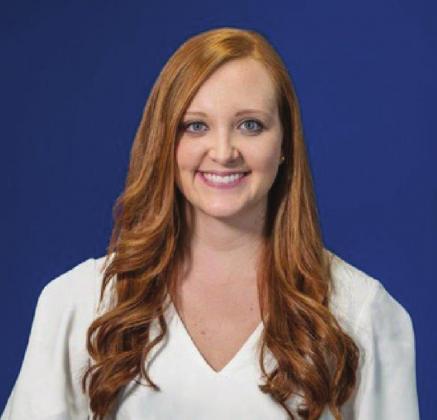Sometimes it takes a famous person’s diagnosis to draw attention to a medical issue which is common place but not commonly discussed. Recently, actor Bruce Willis said he’d be stepping away from his acting career due to his Aphasia diagnosis.
If you do not know what Aphasia is, you are not alone. According to Nicole Fliehman of Brooks Rehabilitation Osceola in Kissimmee, you are among the 84 percent of people who don’t, according to a study by National Aphasia Association in 2016. Fliehman has been practicing Speech Pathology with Brooks Rehabilitation Osceola since 2020, and is certified in the use of Neuromuscular Electrical Stimulation. Her primary passion is working with patients with Aphasia.
Aphasia is an impairment of language which may affect the comprehension and expression that controls language and the ability to read and/or write. But it does not affect intellect. She said up to half of her caseload is dealing with patients diagnosed with this condition.
Many people have Aphasia as a result of a stroke head injury, brain tumor, infection, progressive diseases or dementia. It affects nearly 2 million Americans.
“Based upon the testing we do we can determine the type of Aphasia the patient has,” Fliehman said.
It is currently unknown if Aphasia causes the complete loss of language structure, or if it causes difficulties in how language is accessed and used.
Making a diagnosis may include looking at the brain via a CT, MRI and PET scan. Following the diagnosis, the patient is referred to a speech pathologist who will conduct tests. They include studying speech, naming, repetition, comprehension, reading, and writing. The goal of treatment is to improve the ability to communicate through therapy including nonverbal communication such as computers or pictures or group therapy for patients and families.
Some people with Aphasia recover completely without treatment. But for most people, some amount of Aphasia remains. Speech therapy treatment can help recover some speech and language functions over time, but many people continue to have problems communicating. When asked how long a treatment plan lasts, Fliehman said there’s no cure.
“I have seen some patients for a few months and some for a year. Persons with Aphasia feel like they are trapped because of their communication problems,” she said. “It all depends on the person and the severity of the injury and their own motivation and the support they get from their family. Some patients have gone back to their life prior to the event.
“Ideally if we can get family members involved and work with them. A lot of times it can be about training the family too. It is important for family members to learn how to communicate in a way that is kind and dignified.” Suggestions might include the following: include the person with Aphasia in conversations, simplify language by using short, simple sentences, repeat key words or write them down to clarify meaning as needed, use a natural conversational manner at an adult level, encourage all types of communication, including speech, gestures, pointing, or drawing, don’t correct the person’s speech, give the person plenty of time to express themselves and help the person become involved outside the home, such as through support groups. For some people, computers can be helpful for both communicating and improving language abilities. Fliehman said “that we strive for attainable goals.”
“Bev and Larry* (last names withheld out of privacy) have been faced with the challenge brought about living with Aphasia and Apraxia (difficulty with skilled movement – examples include muscle and mental fatigue) since Bev had a significant stroke in May 2020. Bev spent one week in ICU and then inpatient treatment for one month. After physical, speech and music therapy at home, Bev started going to Brooks Rehabilitation Osceola two to three times a week for speech therapy with Fliehman.
Larry said he absolutely sees differences. They setup priorities in therapy – relearning grandkids names. In speech therapy, they write phrases on 3 x 5 cards.
“Whenever Bev gets a word out it’s like a home run,” Larry said. “Bev was able to say a few words, then two words and now is able to say phrases. Recently, she was able to say ‘I love you Larry.’”
Larry said he was surprised that there were Bruce Willis marathons all weekend long on TV.
“They’re acting like he’s gone,” he said. “Aphasia is not a death sentence”.




